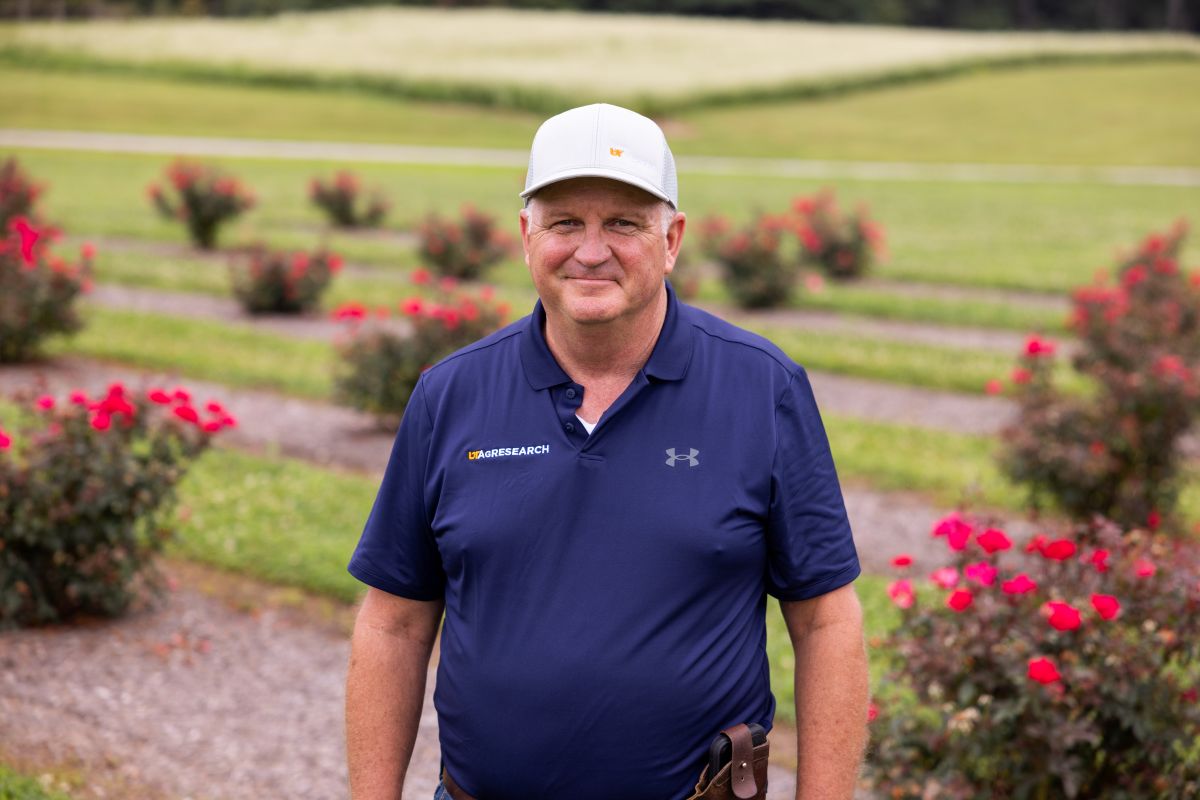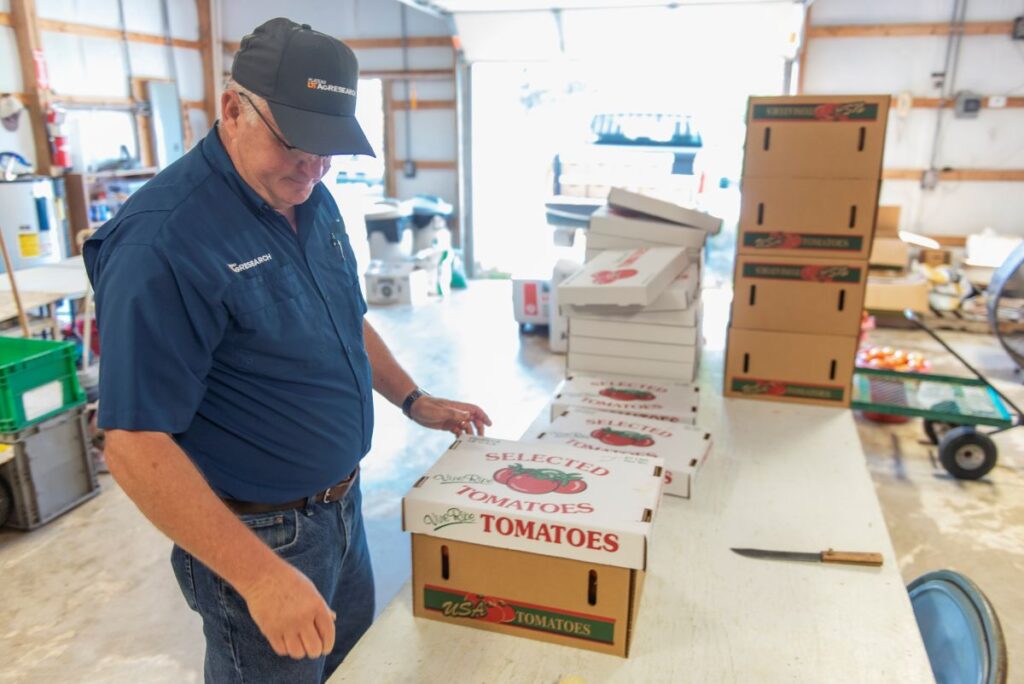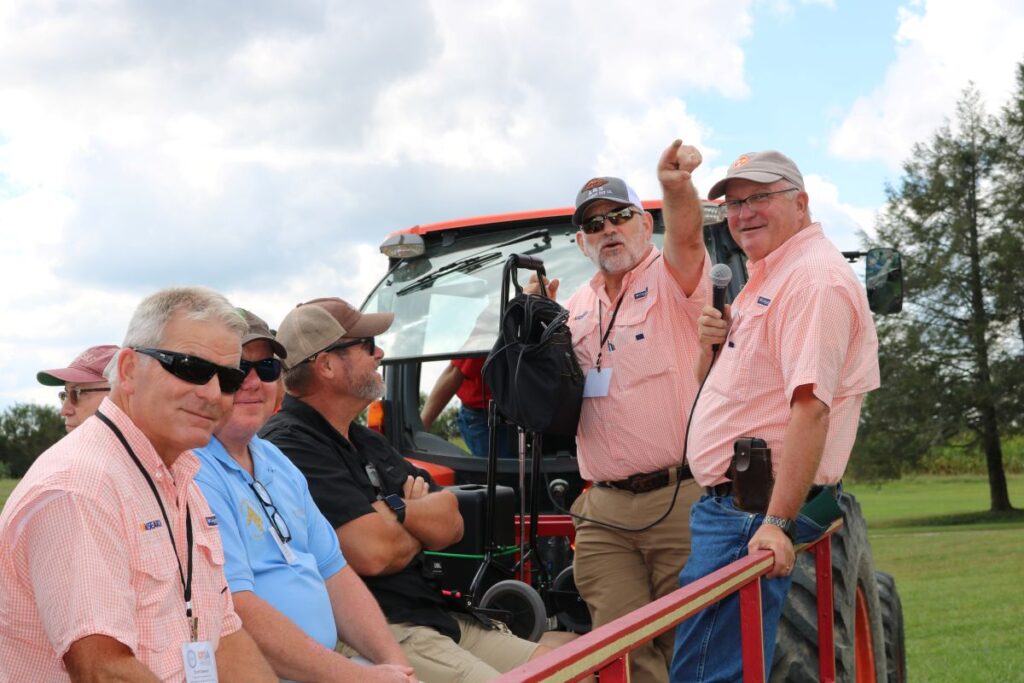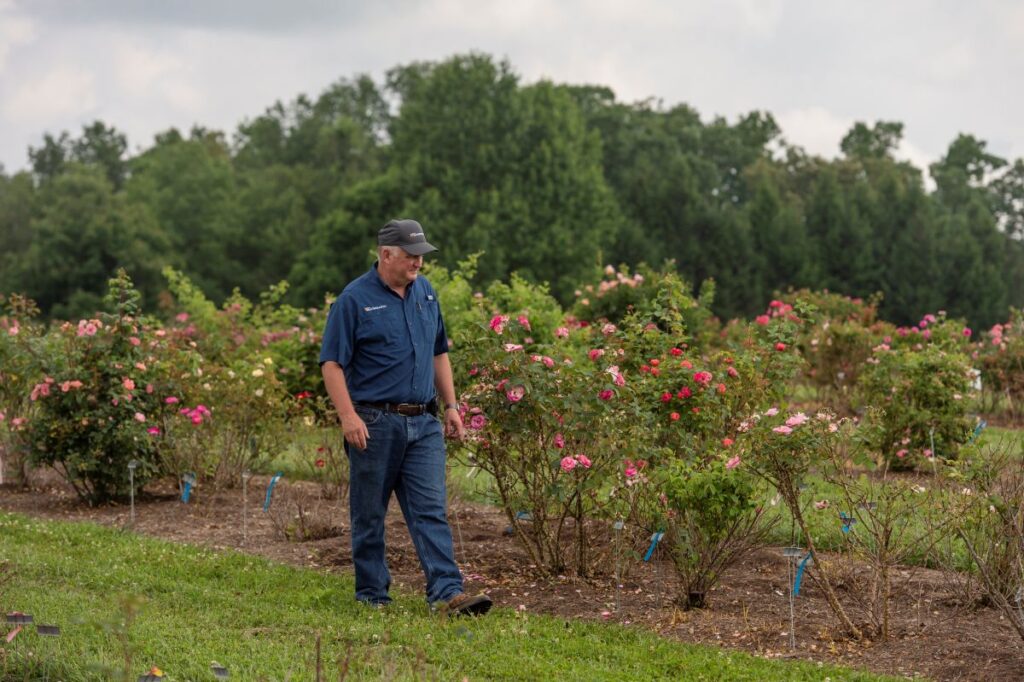
Plateau AgResearch and Education Center Director oversees a variety of research projects focused on improving livestock, crop production and plant health across Tennessee
Where are you from, and how did your education and career lead you to the University of Tennessee Institute of Agriculture?
I am from Maryville, Tennessee, and was raised on a dairy farm. I graduated from the University of Tennessee with a degree in Agriculture Mechanization and an MBA. I worked as a research assistant in ag engineering and learned a lot about ag research and really enjoyed the field research. My next job was working at Case IH in the farm equipment division. Once again, I enjoyed working with farm machinery in the field with equipment dealers and producers. I was fortunate to have the opportunity to rejoin UT AgResearch and move back to Tennessee closer to my family and my wife’s family. We have been at the UT Plateau AgResearch and Education Center for the last 26 years where we have raised our two children.
As Center Director of the Plateau AgResearch and Education Center, what does a typical day look like for you?
First, there is no typical day, and this is what I like about the position. It seems like there is something new every day. At the Center our projects encompass beef, forage, fruit, vegetable and ornamental research. Therefore, every day seems like it is something new. The variety of the work and doing something different each day keeps it interesting.


Why did you choose to pursue a career in agricultural research?
I think of ag research as solving problems regardless of the discipline. I enjoy seeing recommendations for improvement come from research. These improvements can be new varieties, production practices, new pesticides, better ways to market products, etc. The new precision farming technologies are also really exciting and create new and better ways to improve productivity.
What is the most fulfilling aspect of the work you do?
The most fulfilling aspect of the work I do is the people. In my career I have always found people associated with agriculture as “good people”. This includes farmers, company reps, UT employees, other university peers, faculty and students. Having a common bond through agriculture has allowed me to make many friends over the years.
Looking back on your 31 years with UT, what has been your proudest accomplishment or moment?
I am most proud when others succeed. My proudest moments were the successes of both of my children as they graduated and have great jobs in their fields (pharmacist and pilot). I love seeing the successes of other students as well.
What kind of research projects are being conducted at the Plateau AgResearch and Education Center, and which one do you enjoy working with the most?
Our animal research is in the areas of reproduction and animal nutrition. Improving conception rates and feed efficiencies are important to improving profitability of producers. Improving forages goes hand in hand with beef production. Our ornamental research focus is dealing with rose rosette, a disease that is detrimental to the rose industry. We also continue to host vegetable trials and demonstrations mostly in the areas of production and food safety. I really don’t have a favorite, but rather enjoy the variety.

What is an example of one of the Real. Life. Solutions. discovered through research efforts at the Plateau AgResearch and Education Center that has impacted producers in Tennesseans and beyond?
One from several years back was developing the artificial insemination protocols now published and used in the industry. The Plateau AgResearch and Education Center was one of eight institutions collaborating to research different protocols that continue to be used today.
What role does technology play in the research you’re doing now, and how has it changed over the course of your career?
Technology has changed a lot. The biggest change for us has been in animal nutrition studies using individual animal intake technology. Research results are based on statistics and the more experimental units you have, the better the statistics. Historically, experimental units were either pen or pasture. With the new technologies we can tell the consumption of each individual animal on trial. We are in the process of building an expanded facility to continue more work in this area.
What advice would you give to young people considering a career in agricultural research or management?
I would highly recommend it. There are so many opportunities in many different areas. Agriculture is a true science-based industry for those that have that interest.
What do you like to do outside of work and/or what is a fun fact about yourself that your colleagues may not know?
Aretha and I love UT sports, especially football, and enjoy going to the games in the fall. We are involved in our church and are planting a new church in Maryville. One fun fact that my colleagues may not know is that we are planning to become grandparents in November. I expect this will change most of my priorities.
